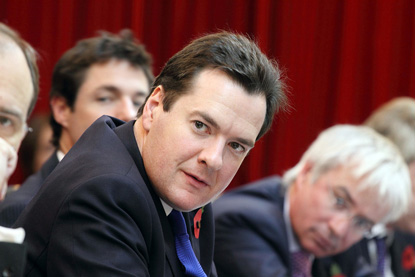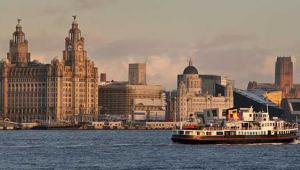
Speaking in Manchester, the chancellor confirmed will say that proposals to boost the powers of metropolitan areas would be included in the government’s Queen’s Speech later this month through a City Devolution Bill.
The plans being developed for Manchester, which has agreed to create a mayor for the city region’s combined authority, should be a template for other areas, he will say. The powers being proposed for the city through a devolution deal include greater control over transport, housing, planning and policing and devolution of NHS spending, should be a template for other areas.
The legislation will confirm the plans for Manchester and will set out a possible framework for other areas, the chancellor said in his first post-election speech.
He will say that the ‘old model’ of running everything from London was ‘broken’ and had unbalanced the economy.
However, he will insist that mayors be created if a similar range of powers are to be offered to those in Manchester. Although other areas, such as Sheffield city region and West Yorkshire, reached devolution pacts with the last coalition government, they were less wide-ranging than the flagship deal for Manchester.
'It’s right people have a single point of accountability: someone they elect, who takes the decisions and carries the can,' he said. 'So with these new powers for cities must come new city-wide elected mayors who work with local councils.
'I will not impose this model on anyone. But nor will I settle for less.'
It will be up to local councils if they want to sign up to what Osborne called a 'new revolution in city government'.
He added: 'But equally, I’m not interested in any more half-way house deals. We will transfer major powers only to those cities who choose to have a directly elected metro-wide mayor.
Responding to the announcement of the Cities Devolution Bill, Local Government Association chair David Sparks said the benefits of devolution reach every corner of England and the United Kingdom.
‘This will require different approaches to both governance and the powers in different areas, rather than a one-size-fits-all solution,’ he added.
‘There is compelling evidence that making decisions at a more local level will bring about huge economic and social benefits including reducing youth unemployment by half, creating 500,000 homes and helping people to live independently at home longer, saving almost £4bn alone.
‘We are now urging government to go further and set out a new settlement for all of England which devolves decisions on important issues like skills, housing, transport, care and infrastructure. This is vital if the economy is to prosper and good quality public services are to survive.'
IPPR North director Ed Cox said the chancellor’s Northern Powerhouse must be about more than mayors and big cities.
‘George Osborne is right to pursue his devolutionary agenda immediately after the election. Some questioned whether the Northern Powerhouse was an electoral gimmick, but the energy for city devolution would appear undiminished with today’s speech in Manchester.
‘Now we need to see this agenda move beyond core cities. Smaller towns and cities are a crucial part of the Northern powerhouse and can help drive the region’s growth, providing they share in on the benefits of new powers and prosperity.’
He warned that the insistence on mayors could represent ‘a significant sticking point’ in th plans.
‘We have long argued metro mayors are vital to build visible leadership and democratic accountability necessary for the more radical devolution of taxation and spending we want to see. But even in this arena, the Chancellor needs to recognise that there is no one-size-fits-all model for metro mayors.’
Osborne’s announcement comes as the group of ten core cities – the biggest UK cities outside London – today called for the government to devolve powers to local areas to ensure a ‘radical modernisation’ of the UK state.
The group highlighted in a charter that independent forecasts showed greater freedoms for the eight core cities in England alone could deliver a £222bn boost to the economy and create 1.16 million jobs by 2030.
It called for the government to take immediate action to reach a devolution settlement by including legislation in the forthcoming Queen’s Speech to allow for devolution to cities that would also allow different governance structures in different parts of the country.
It also called for a new independent devolution commission to be created as part of a ‘transparent and robust’ localism programme. This would assess the readiness of areas for extra powers, but would operate under a presumption in favour of devolution.
Core Cities chair and leader of Manchester City Council Sir Richard Leese said that if the government was serious about economic growth and deficit reduction, it should immediately enter a dialogue with cities.
‘Our offer is to work with them to rebalance, reform and renew Britain,’ he said. ‘Rebalance and grow the economy to create more jobs and eliminate the deficit. Reform public services to improve outcomes and reduce costs through better coordination of funding and services, focusing on people and place. Renew democracy to give people a major stake in their own future.’



















